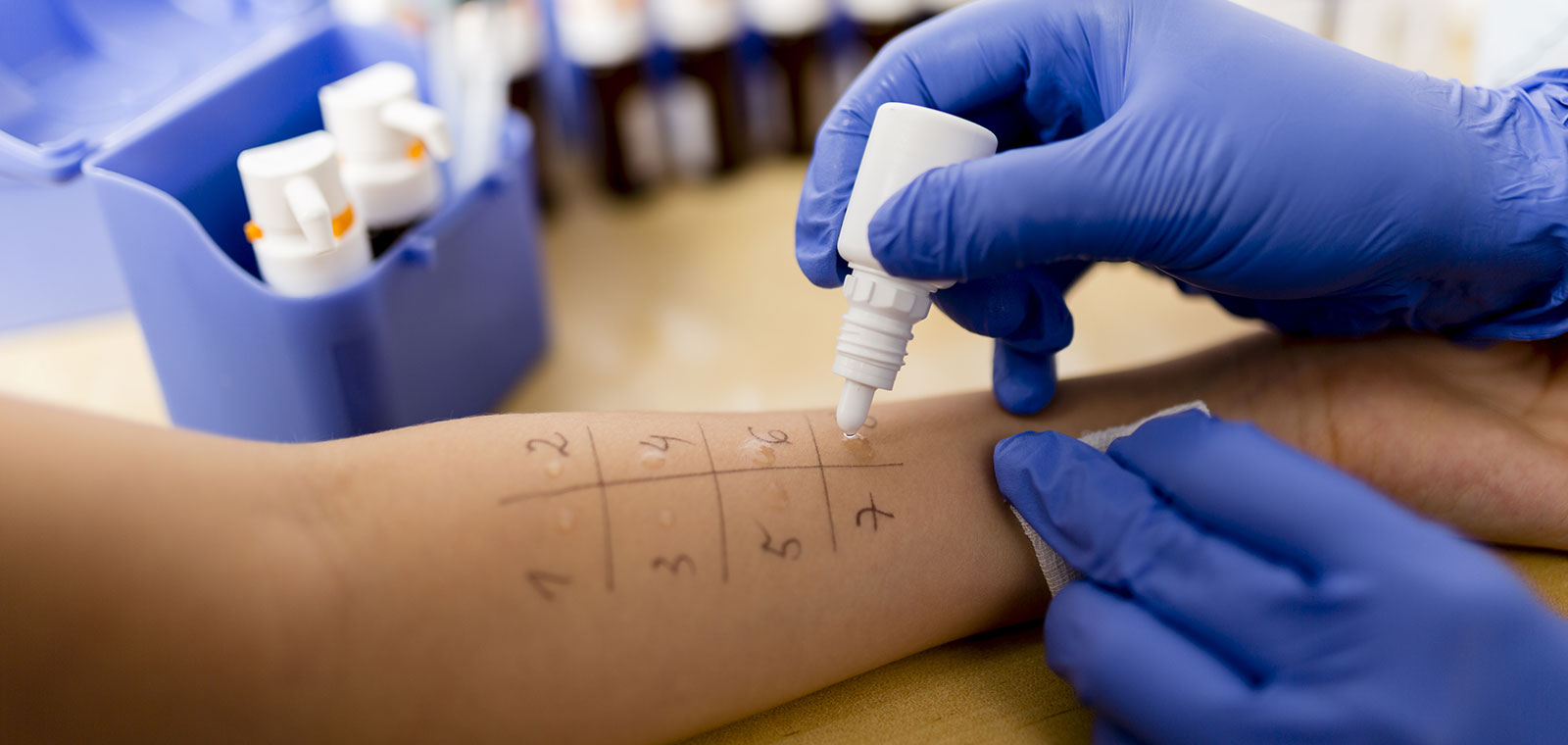
Skin allergies are very common and they can be managed effectively. Many things including plants, such as poison ivy, intolerances to medication or food, or a response to an illness, can cause an allergic reaction. It occurs when a substance that you eat, breathe or touch triggers an immune response in your body. The substances causing the reaction are called allergens. Some common examples include nickel, latex and dust mites. Symptoms can range from mild to severe on the area of skin that touched the irritant or allergen and may include: redness and swelling, itching, itchy bumps or blisters that may ooze fluid, rash, cracking or peeling of the skin.
Allergic contact dermatitis – is caused when the skin touches either an allergen or something that irritates it, causing symptoms such as a rash, blisters, red patches, itching and burning.
Atopic dermatitis/allergic eczema – skin may become red, irritated and itchy. Sometimes there are small, fluid-filled bumps that may ooze. This most often occurs in young children with hay fever, asthma or a food allergy.
Urticaria (hives) – red bumps or welts that can appear anywhere on the face and body and can disappear within 24 hours or last up to six weeks. Commonly occurs as a result of a food allergy.
Angiodema – this is a more serious reaction to an allergen, which leads to swelling in the deeper layers of the skin and sometimes in the airways. Angioedema often occurs with hives. It can be hard to determine the cause of angiodema, but allergy testing may help to identify a trigger allergen.
Some allergies are easier to manage than others. If you know that a particular food triggers an allergic reaction, you’ll be good at avoiding it. If you have a latex allergy, you can choose different types of gloves, or wear inner liners.
Skin allergy testing can help to identify your level of response to specific allergens. Intolerances and allergies can also be identified through blood tests. If we think an allergy may have caused your dermatitis, we may recommend testing to find out what you may be allergic to. Skin tests include:
Our team of consultant dermatologists offers assessment, testing and management of all types of skin allergy. Once you know the allergens you are sensitive to, part of the treatment will be to avoid them but you may also need creams, gels or washes to calm the skin and allow it to heal.
We are opened Saturday – Thursday 9.30AM – 6.30PM
Address
Villa 3-4
510, Jumeirah Beach Road,
Jumeirah 3 - Dubai
Email us
info@lespritclinic.com
Call us
+971 4 338 8238